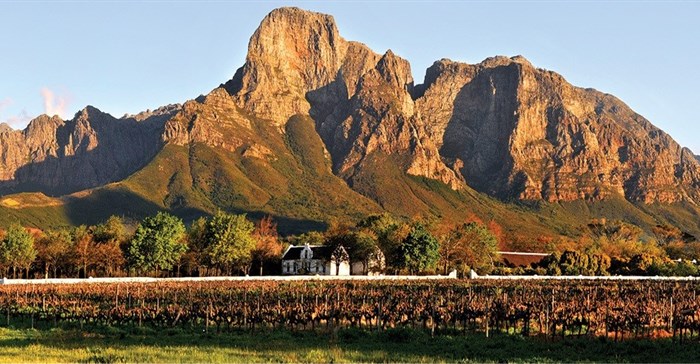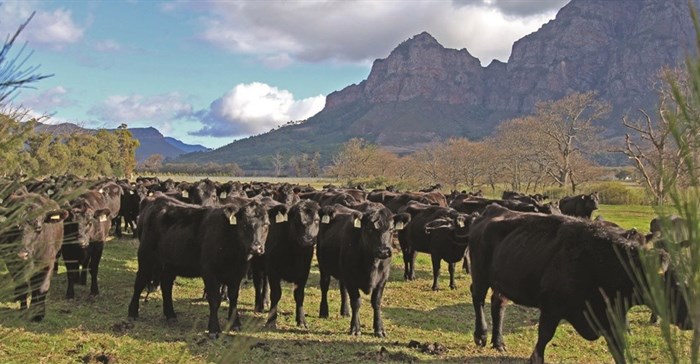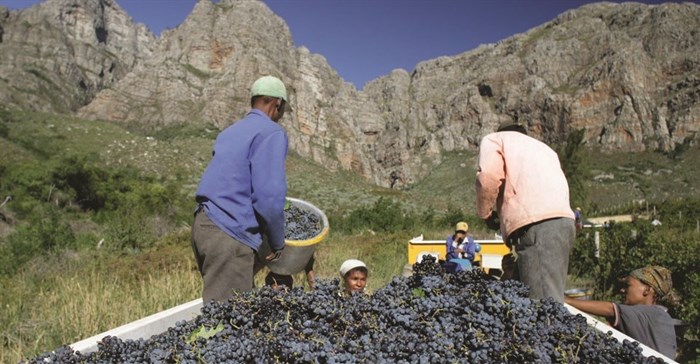Rob and Sam Lundie, together with a group of investors, purchased the iconic 2,000 ha Boschendal Estate in 2012 with the dream to a build a leading agricultural farm based on a sustainable eco-system of biological farming, farm-to-table practices and investment into the surrounding communities. Four years later, the farm is thriving.
With 350 jobs created and R30-million a year injected into the community in wages alone, 300,000 new fruit trees planted and soil health vastly improved. The farm has also significantly reduced pesticides and is using biological farming practices to protect the land now and into the future.
Says CEO Rob Lundie, “When we purchased Boschendal I think it surprised many that our plans were not centred on development and quick profit. Our vision for this incredible piece of property has, from the outset, been to positively impact the environment, to invest in and uplift the local community and to build a sustainable agricultural farm which can flourish for generations to come. Of course, it is a business and there are some plans for low-key development on existing built-up land, but development and short-term profits are not our main drivers.”
Lundie said the estate is focussed on six key areas: creating a natural, sustainable eco-system, diversification, and expansion of agricultural activities, improving and opening up conservation areas, expanding the hospitality facilities and services, fostering entrepreneurial activities among the local community and supporting social development.
Improved soil quality
Boschendal grew its cow herd from 200 Black Angus cattle in 2012 to more than 950 in 2016. The cows improve soil quality by trampling manure and other decaying organic matter into the soil, turning it into rich humus. To further improve the quality, free range, pasture fed chickens in mobile units called chicken tractors follow the cows. As well as producing eggs for guests, they spread cow manure thereby further fertilising the soil.
This, as well as various other projects to improve soil quality - the use of cover crops to boost natural compost production, minimising the use of harmful of pesticides and herbicides, using the drill technique rather than ploughing the soil and using a biochar that turns agricultural waste into a natural soil enhancer - have resulted in a significantly improved soil quality across the estate.
Environmental restoration
Key projects here include reducing water use through intelligent irrigation and the use of biochar; the clearing of 450 hectares of alien vegetation, and the establishment of a conservation area. The estate is also actively increasing its use of sustainable energy - the farm is in the development phase of generating sufficient solar power to meet the estate’s energy needs.
In Boschendal’s hospitality operations, the estate is decreasing its footprint by minimising food miles and food waste, as well as using composting and agri-landscaping. Game has been introduced to the York/Groot Drakenstein area to generate tourism opportunities and help conserve the indigenous flora.
Social and economic upliftment
People are a high priority for Boschendal. The estate has created 350 new jobs in the past three years which has enabled it to inject R30-million into the local community each year through wages alone.
Boschendal and Solms-Delta have partnered to establish an early childhood development pre-school, "Klein Handjies", on the farm. The vision was to create an educational foundation for the local children and "Klein Handjies" also offers the enrolled children nutritious meals throughout the day made by Boschendal chefs from estate produce. There are 60 kids enrolled with the expectation for this to grow at least 120 by year-end.
Entrepreneurial development
Linked to the social upliftment, Boschendal provides entrepreneurs from surrounding communities with an initial market for their product or service, startup financing, business guidance, and back office and accounting support. Among the small business supported are:
• The Silvermine Protection Services –the security company for Boschendal and Delta Crest Estates
• Pasture-raised chicken and egg production - employing eight people between two related businesses, 2,500 chickens are sold and 8,000 eggs are produced each month
• A furniture-making business – run by a master craftsman at Boschendal and employing three apprentices
New opportunities for local entrepreneurs which are being planned include beekeeping, honey, alien vegetation eradication and trail building enterprises.
Lundie concludes, “Boschendal will continue to nurture and grow into the future. In many ways, we are just getting started. We are so excited about investing in more local entrepreneurs and working with them, and our incredible staff and suppliers, to unleash all the potential that this estate has to offer. We look forward to continuing to practice innovative sustainability well into the future.”






































